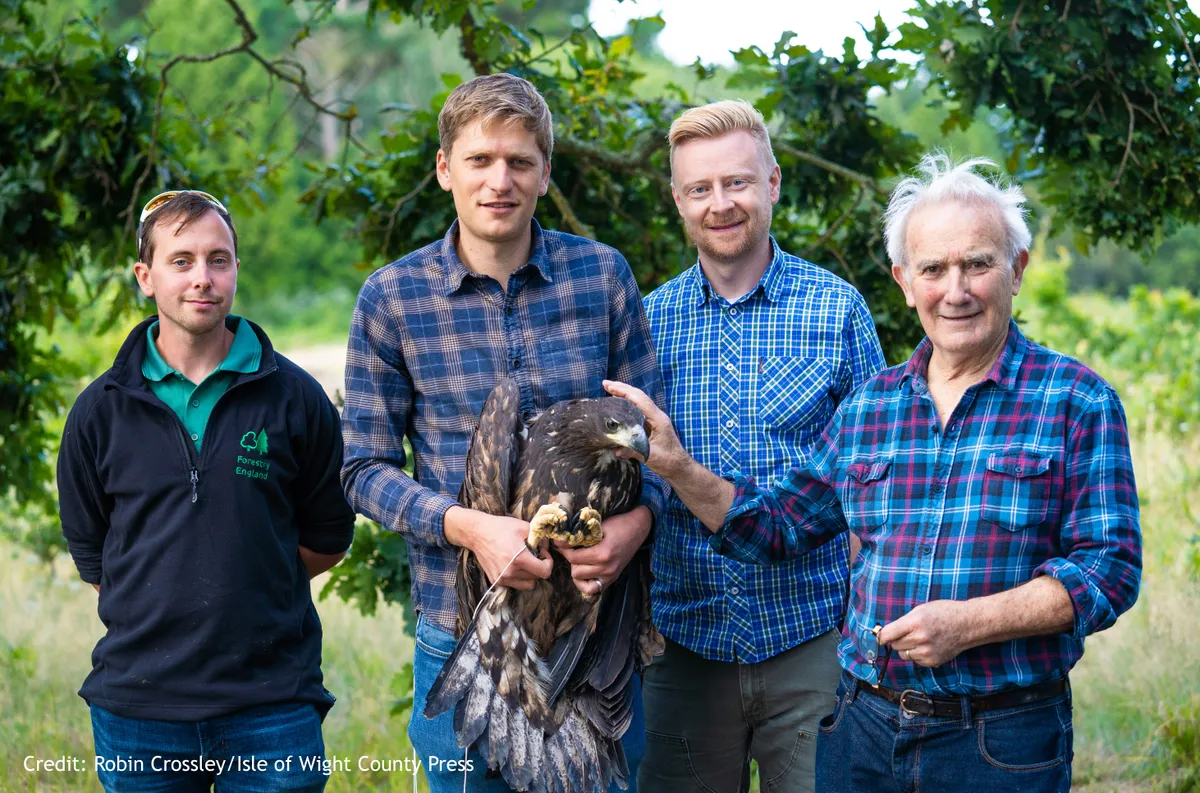The release forms part of a five-year programme to return the species to England with plans to release at least six birds annually, although it will take several years for the young birds to become established and breeding is not expected to start until at least 2024.
It is hoped the project can match the success of Scotland’s white-tailed eagle population, with the birds becoming a familiar site over the skies of the Isle of Wight and nearby mainland coast.
Also known as sea eagles, white-tailed eagles were persecuted to extinction across Britain by the beginning of the 20th century. Chicks from Norway were returned to Scotland in the 1970s, and there are now 130 breeding pairs across Scotland.
The six young eaglets were collected and transported to the Isle of Wight under a Scottish Natural Heritage licence.

The eaglets, which can grow to a wingspan of 8ft, have been fitted with satellite trackers in order to closely monitor their progress. Data on their movements will be available on the Roy Dennis Wildlife Foundation website, which led the project with Forestry England.
The Isle of Wight was chosen as the location to reintroduce the white-tailed eagles, thanks to central position on the south coast allowing the birds to disperse east and west along this coastline.
It also provides an ideal habitat for these coastal loving birds as its network of cliffs and woodlands provide many potential nesting sites. The Solent and surrounding estuaries will provide a rich food supply for the eagles, with fish such as grey mullet and water birds forming a key part of their diet.
Roy Dennis, founder of the Wildlife Foundation said: “Establishing a population of white-tailed eagles in the south of England will link and support emerging populations of these birds in the Netherlands, France and Ireland, with the aim of restoring the species to the southern half of Europe.”
The reintroduction of Britain’s largest bird of prey is being conducted under licence from Natural England, the Government’s wildlife licensing authority.
Chairman of Natural England, Tony Juniper, said: “The return of these spectacular birds to England is a real landmark for conservation. I very much hope that it will also provide a practical demonstration of the fact that we can actually reverse the historic decline of our depleted natural environment.
“It will also show how helping the recovery of our wildlife can be done at the same time as bringing benefits for people, in this case by offering a boost to the local economy through wildlife tourism, as has happened in Scotland after these birds were reintroduced there back in the 1970s.